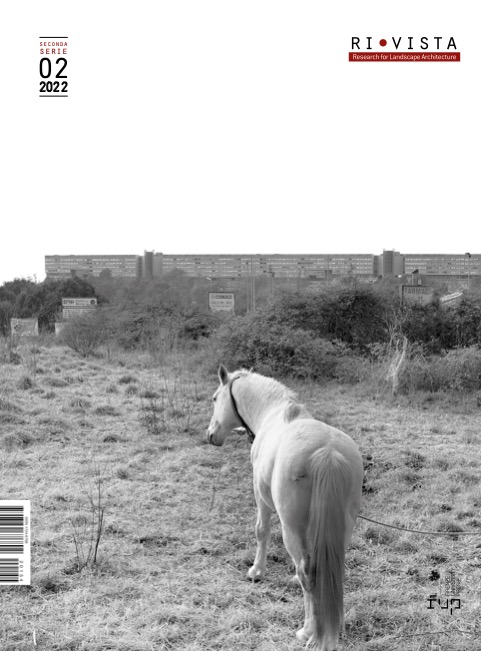Published 2023-02-23
Keywords
- Agriculture,
- Biodiversity,
- Herdade,
- Mediterranean,
- Rural Landscape
How to Cite
Abstract
The paper refers to research and projects shared between Sardinian and Portuguese agricultural landscapes which, starting from the continuous investigation of this common cultural matrix, try to trace an evolutionary line of the historicized ways of co-evolutionary landscape construction and foreshadow some possible scenarios of continuity.
In particular, the paper will focus on two projects by the Global Arquitectura Pajsagista studio in Alentejo, in which the approach to the study of the place can refer to a multi-scale methodology that links the study of the historical uses of agricultural landscapes, with the understanding of physical structures and evolution of vegetation cover foreshadowing a new idea of space starting from the interaction between man and these two dominant ones. With respect to these two topics declined in the “man-soil” and “man-living beings” relationship, it can be said that agricultural projects - and this is historically true, but even more so today - argued exactly the necessary meeting between utilitarian practices and symbolic of the primary productive activities of man with the “self poietic” and “ecological” regenerative dynamics of a specific way of organizing the terrestrial space. The presented cases, in fact, try to show the landscape design ability, into the rural Mediterranean areas, to activate co-evolution processes between the regeneration of agricultural soils and the human needs of inhabiting linked to leisure and refreshment.






